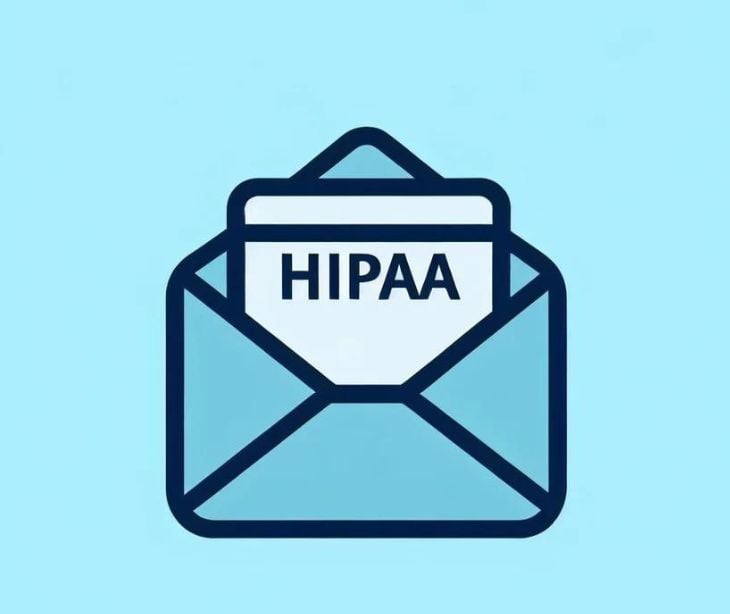2 min read
Securing health literacy frameworks with HIPAA compliant email
Caitlin Anthoney January 02, 2025

Providers can use HIPAA compliant emails to advance patient-centered care and support health literacy frameworks like Ask-Me-3. Ultimately, incorporating these frameworks in secure emails can help patients make informed decisions, leading to better health outcomes.
What is Ask-Me-3?
According to a study on the role of patient engagement in personalized healthcare, “Ask-Me-3 focuses on setting the stage for healthcare visits to be patient-centered. Ask-Me-3 encourages patients to ask three questions key to promoting health literacy and include:
- What is my main problem?
- What do I need to do about the problem?
- Why is this important to me?”
These questions “take social, cultural and personal values into consideration” and “may be useful in beginning conversations with patients… that lead to personalized healthcare.”
Achieving these outcomes also requires secure communications throughout clinical encounters. More specifically, providers must adhere to the Health Insurance Portability and Accountability Act (HIPAA) for safeguarding patients’ protected health information (PHI) throughout these communications.
Using a HIPAA compliant email solution, like Paubox, can help providers extend the principles of Ask-Me-3 beyond the walls of the clinic, allowing seamless communication while safeguarding patient information.
How HIPAA compliant email supports Ask-Me-3
Addressing healthcare communication barriers
HIPAA compliant emails are proven to address communication barriers like medical jargon, language differences, and cultural nuances that hinder patient understanding. So, patients can get clarification after appointments or additional resources to help them better understand their treatment plans.
Extending the conversation
If patients need more time to process the information shared during an appointment, they can use secure emails to ask follow-up questions about their diagnosis, treatment plan, or recommended intervention.
A HIPAA compliant solution, like Paubox, allows an ongoing dialogue between a patient and their provider, reinforcing understanding and encouraging informed decision-making.
Personalized support
Providers can use secure emails to share patient-specific resources, like educational materials, medication instructions, or reminders for follow-up visits. These personalized communications help patients address their specific health concerns, improving health outcomes.
Proactive communication
HIPAA compliant email enables providers to reach out proactively, reminding patients about upcoming appointments, preventive screenings, or lifestyle changes. These reminders also support health maintenance and align with the “Why is this important to me?” question in the Ask-Me-3.
Building trust
Adhering to HIPAA standards helps promote a trusting patient-provider relationship. When patients know their data is handled securely, they are more likely to respond with truthful answers, encouraging collaborative care.
Best practices for using HIPAA compliant emails
Personalize emails: Use data from electronic health records (EHRs) to tailor messages to address specific patient needs.
Promote accessibility: HIPAA compliant emails must be compatible with assistive technologies like screen readers and include different language options.
Encourage engagement: Encourage patient responses that foster engagement and promote interactive care.
Share resources: Include secure links to verified health information to help patients better understand their conditions and treatment plans.
Measure impact: Regularly evaluate the effectiveness of email communication in improving patient satisfaction, engagement, and health outcomes.
Go deeper:
- Assessing patient engagement metrics in HIPAA compliant emails
- Tracking the impact of HIPAA compliant email
FAQs
Do providers need patient consent for HIPAA compliant emails?
Yes, a provider must get explicit patient consent before sharing their PHI through HIPAA compliant emails.
Learn more: A HIPAA consent form template that's easy to share
Are standard emails secure for discussing sensitive healthcare information?
No, standard emails do not provide the necessary encryption to protect sensitive healthcare information from potential breaches. So, providers must use a HIPAA compliant email platform, like Paubox, to safeguard patients' protected health information (PHI) during transmission and at rest.
Do emails improve collaboration among healthcare providers?
Yes, HIPAA compliant emails can facilitate interdisciplinary discussions, consultations, and knowledge exchange among healthcare providers, promoting collaboration and enhancing clinical decision-making.
Read also: An approach to shared decision-making using HIPAA compliant email
Subscribe to Paubox Weekly
Every Friday we'll bring you the most important news from Paubox. Our aim is to make you smarter, faster.



